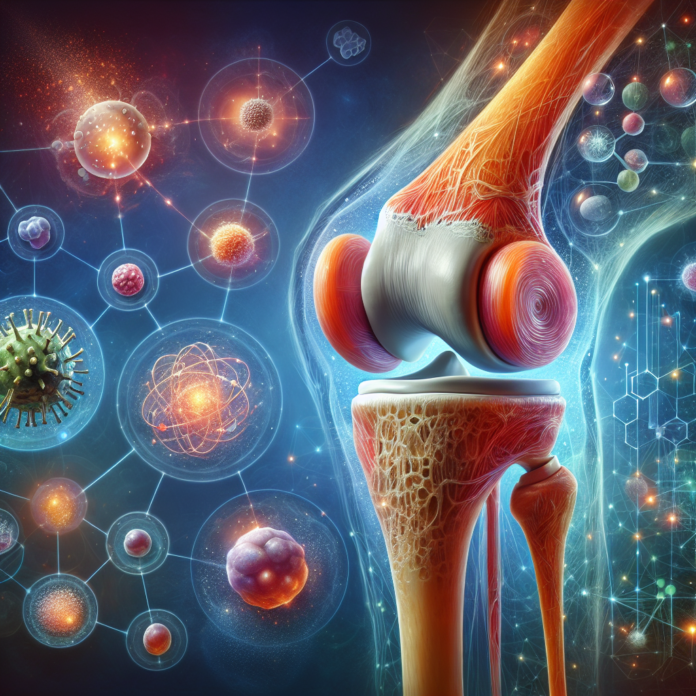The Role of the Meniscus and Challenges in Healing
The meniscus plays a crucial role in the anatomy of the knee, acting as a shock absorber and stabilizer. Its unique C-shaped cartilage structure is unfortunately prone to tears, often leading to pain and decreased function. Traditionally, meniscus tears have been difficult to heal due to their limited blood supply, making surgery a frequent recommendation by medical professionals. However, with advancements in regenerative medicine, there is growing interest in whether non-surgical treatments could offer alternatives for healing meniscus tears and addressing knee arthritis.
Exploring Regenerative Treatments
Platelet-Rich Plasma (PRP), stem cells, and exosomes are among the regenerative treatments being explored. PRP involves using a concentration of a patient’s own platelets to accelerate healing of injured tendons, ligaments, muscles, and joints. The theory is that injecting PRP into damaged tissues will stimulate the body to grow new, healthy cells and promote healing. Similarly, stem cells have the potential to differentiate into various cell types and could help in regenerating damaged tissue when introduced directly into the knee joint.
Exosomes, which are tiny vesicles released from cells, play a vital role in cell-to-cell communication. They carry proteins and genetic material that can influence the behavior of nearby cells, potentially promoting healing and regeneration when administered therapeutically.
Key Regenerative Treatments
- Platelet-Rich Plasma (PRP):
- Originates from the patient’s own blood, minimizing compatibility issues.
- Contains growth factors that could aid in tissue repair.
- Some studies suggest PRP may reduce pain and improve knee function in arthritis.
- Stem Cells:
- Harvested from the patient’s bone marrow or adipose tissue.
- Possess the ability to transform into the type of cells needed for repair, theoretically providing a means to regenerate damaged knee cartilage.
- Still experimental, but initial research indicates potential for reducing inflammation and pain while facilitating healing.
- Exosomes:
- Deliver bioactive molecules directly to target cells, potentially enhancing the body’s natural repair processes.
- Could modulate immune response, possibly reducing inflammation with fewer side effects than current treatments.
Current Limitations and Considerations
Despite their promising potential, it’s essential to recognize that these treatments are still considered experimental by regulatory bodies like the FDA. While there are ongoing studies and clinical trials, definitive evidence establishing their efficacy and safety is not yet available.
It is also critical to set realistic expectations. Although these treatments could aid in reducing pain and improving function, they might not fully restore the meniscus or cartilage to its original state. For instance, while PRP and stem cells may herald improvements in the early stages of arthritis, they are unlikely to reverse the damage completely or replicate the resilience of a youthful, healthy knee.
Making Informed Decisions
When considering these treatments, you must weigh the potential benefits against the fact that they are not yet standard practice. Discussions with your healthcare provider will be vital, not only to evaluate these treatments but also to explore their appropriateness for your specific condition.
Additionally, while cortisone shots are commonly offered by orthopedic surgeons for knee pain management, they primarily provide temporary relief by reducing inflammation. They do not facilitate healing of the meniscal tissue or address underlying cartilage degeneration. Thus, regenerative treatments could be an attractive option for those seeking to tackle the root of the problem rather than just alleviating symptoms.
Conclusion
If you are interested in exploring these alternatives, here’s what you might want to consider:
- Discuss with your doctor the current evidence and research related to regenerative treatments.
- Consider the stage and severity of your meniscus tear or arthritis, as regenerative treatments may have varying levels of efficacy depending on these factors.
- Evaluate potential costs, as these treatments may not be covered by insurance due to their experimental status.
- Reflect on your personal health goals, weighing the desire for non-surgical solutions against the current uncertainties in long-term outcomes.
The realm of regenerative medicine is rapidly evolving, and while it may be too early to declare it a silver bullet, it undoubtedly represents an exciting frontier for non-surgical management of meniscus injuries and knee arthritis. As research continues, we may soon have clearer insights into how these innovative treatments can be integrated into standard orthopedic practice, offering hope for those looking to recover knee function and enjoy a more active, pain-free life.
